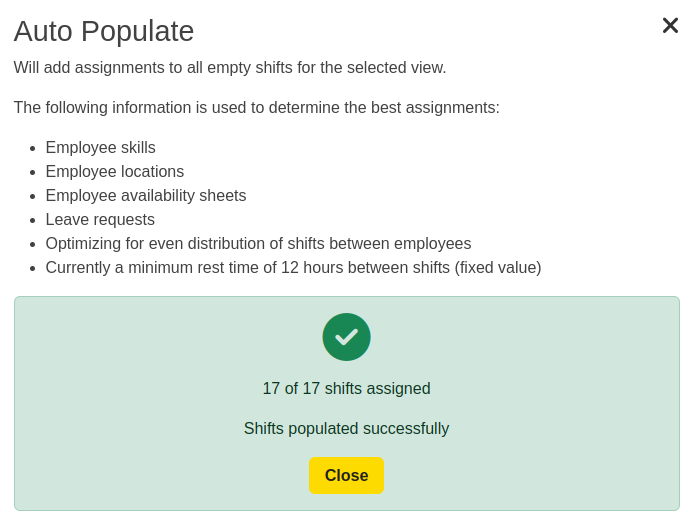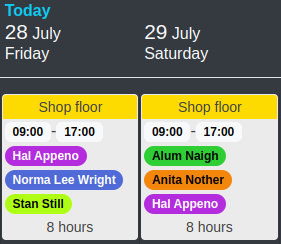The Future of Rota Planning with Artificial Intelligence
 By Kieran - Founder
By Kieran - Founder
(Updated April 2025)
Since the expansion of AI in 2020, it was clear to us that it would transform how rota planning is done. We moved fast—becoming one of the first to implement AI in rota software—and have been sprinting ever since to push the boundaries of automation and efficiency.
Built for Long-Term Time Savings
From day one, our focus has been on saving businesses time—not just once, but every single week. Our rota planner is designed to minimise repetitive admin work. Once the initial setup is done, teams can generate complete schedules in seconds—leaving more time to focus on customers, operations, and strategy. Learn more about our comprehensive employee schedule management software and how it streamlines your workflow.
Smarter Planning with Pre-Built or Custom Shift Patterns
Before AI can do its job, the system needs to understand what a "good" rota looks like for your business. That's where defining shift patterns comes in.
You can start by using one of our pre-built templates like 4-on-4-off, Dupont, or other industry-standard cycles. But most of our customers prefer to build their own recurring shift patterns to match their exact needs.
For example: a retail store might need 3 floor staff every Monday. The manager creates a recurring shift for Mondays with:
- A staff requirement of 3
- A skill requirement of "Floor staff"
They repeat this for the rest of the week or month. This setup only needs to be done once—after that, the system knows the structure. Individual shifts can always be tweaked as needed, but the backbone of the rota never needs rebuilding.
One-Click AI Auto-Population
Once your business rules and shift patterns are set, our auto-populate feature handles the rest.

Using a specialised algorithm, the system evaluates all the possible staff-to-shift combinations and calculates the most efficient solution. It:
- Distributes shifts fairly
- Matches staff skills and availability
- Fulfils contracted hours
- Enforces rest period and compliance rules
With one click, managers generate a full rota that's balanced, compliant, and tailored to their team— week after week.

What's Next: A Fully Autonomous Rota Engine
We're now building the next evolution of rota AI: not just assigning shifts, but generating shift schedules from scratch.
The end goal? A system that:
- Knows your business rules and operating needs
- Gathers employee availability automatically
- Builds the full rota end-to-end
- Flags conflicts and recommendations
- Requires only light-touch human review
This means the traditional role of the rota manager shifts from hands-on planner to high-level reviewer. Our vision is a rota that runs itself—freeing up hours every week while improving accuracy and fairness.
Who Gets the Most Value?
Our AI-powered rota tools are already saving time for businesses of all sizes—but they deliver especially big wins in fast-paced, shift-heavy environments like:
- Hotels
- Restaurants
- Bars
In these sectors, where staffing needs change frequently and compliance is critical, automated planning isn't just a nice-to-have—it's a game-changer.
Ready to see it in action?
Sign up today for a free trial and our team will personally help you get set up, define your shift patterns, and start saving time from day one. No commitment needed—just give it a go!

Kieran
Founder, RotaPlanner.app

